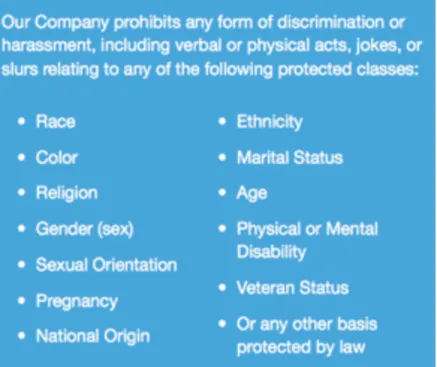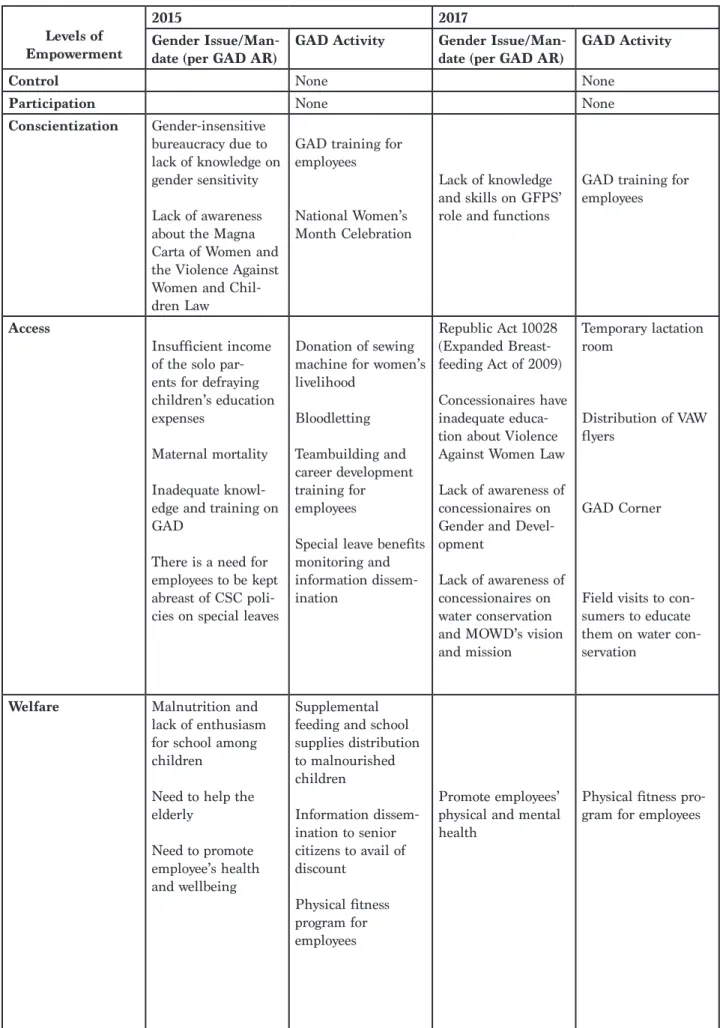She elaborates on how lesbian women struggle with the added hurdle of discrimination in the workplace, on top of the numerous health impacts of call center work. The subsequent phase of the interviews focused on the health problems that they personally experienced as call center employees. The studies conducted abroad on the health impacts of call center work echo the responses of the research participants.
These unhealthy habits contribute to the adverse health effects of working in the call center. All of the participants in the study admitted to having trouble sleeping due to their changing work schedule. In the study, participants shared the health impacts of call center work and the experiences of being a lesbian in the call center.
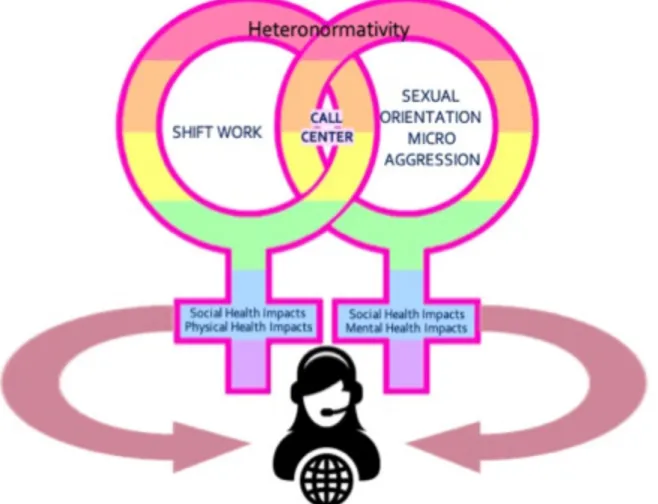
Pushing the Boundaries of Motherhood and
At appropriate points in the conversation, the researcher shared her own perspectives and opinion on how women's empowerment is accompanied by a stigma-free and sex-positive perspective of sexuality, and how contraception is important to allow. The meaning of reproductive freedom for individual women in urban poor communities was expected to be limited by traditional norms surrounding women's sexuality, and assisted by the strong individual and collective assertion of women for rights over their own bodies, and the well-being of be their children. The good mother identity arose from women's desire to offer their children a better life than their own.
Because patriarchy encodes all care work as a feminine ethic that requires dedication to others and selflessness, and is something that “good women do” (Gilligan, 2011), the gossip that befalls women who do seem to be a natural consequence of their behaviour. In both cases, women's efforts to find work were overcome by mothers' unique responsibility to care for their children. The persistence of women in their choices, with the support of networks such as Likhaan, makes contraception the apostate choice of women (Gacad, 2019).
The use of modern contraceptives represents women's control over their fertility so that they can raise their children to generally accepted standards of competence and productivity, even with their meager resources. To resolve this, it is necessary to understand the inherent power that lies in women's decision to endorse moral motherhood. Women's stories reveal other elements of empowerment in their experiences of unplanned pregnancies, sexuality, and their desire for their daughters to live like dalagas.
Likhaan volunteers' narratives show a shift in parenting strategy towards progressive views on sexuality and how this improves women's relationships with their children, as well as their children's socio-economic opportunities. According to the participants in the focus group discussion, their training gave them a strong sense of self outside of being a mother, an identity as a Likhaan volunteer and advocate for women's health rights, and a collective that supports these.
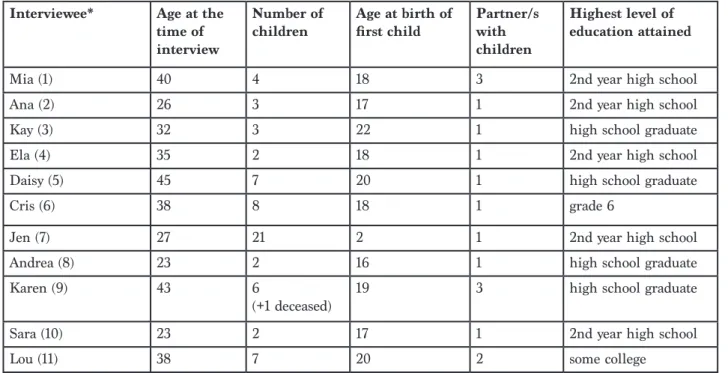
The President’s Monologues
This study draws on the Precarious Manhood theory developed by Bosson and Vandello in the field of social psychology to frame it, along with other key concepts in Critical Studies of Men and Masculinities (Hearn, Pringle, Ruspini and Pease, 2011). I believe in women, their competence and ability, but not in all aspects of life.)” (ABS-CBN News, 2018). Even if you say women are smart, all in the political horizon - you are better off with young people.
In the quote below, Duterte seems to strike the "cool pose" by taking the threat of imprisonment casually and even eagerly with his flippant and cavalier disposition. E tutal sawa man ako sa asawa ko and conjugal visits are allowed in Muntinlupa. Homophobia and the professional discourse also figure in bullying - although the latter in its extreme form is a form of hypermasculinity, which will be dealt with in more detail in the following section.
In the wake of the attack, instead of addressing the possibility that his bragging might have been instrumental in prompting the terror group to attack the city, Duterte doubled down on the violent rhetoric. The construction of masculinity in the Philippines, particularly the identification or characterization of the hegemonic male in Filipino culture, may be crucial in such an analysis—providing a richer lens through which future studies can explore how Duterte portrays himself and the contexts that where he says what he says. Finally, and perhaps most crucially, it is necessary to examine how all these affect other men - in positions of power, especially in politics and public service, and the man in the street.
Subliminal evidence already shows that a significant number of politicians have actually followed Duterte in the way they speak and behave. In the meantime, this study aims simply to be a useful resource for starting these discussions.
Problematizing Privatization
This paper explores the impact of these implications on local watersheds' gender mainstreaming efforts. The local water areas mentioned here were selected on the basis of accessible public documents. Three main implications relevant to GAD budgetary policy were observed in the local water areas examined.
First, the drastic decline in local water district revenues, as a result of the JVAs' joint provision that the local water district will receive a fixed share of revenue while the private partners will keep all revenue in excess ( Metro Ozamiz Water District (MOWD) COA Audit Report, 2017). Another observed direct impact of privatization was the reduction in the number of employees retained by the local water unit. This downsizing after the JVA is a direct consequence of the assumption of the private partner for the main functions of the local water district.
With the migration of core functions to the private entity, the local water district also has fewer options for gender mainstreaming, especially for making regular programs gender-responsive. While the local water district suffers from a lack of staff to implement the GAD budget policy, most of the employees are housed in the private entity, outside the mandatory scope of the GAD budget. Financially and functionally, the privatization of local water districts under the JVA model has given rise to a highly unequal arrangement where most of the financial benefits accrue to the business partner and the local water district is stripped of its core functions.
First, the fixed revenue-sharing arrangement with the local water district and the resulting reduced GAD budget limit the planning and implementation of GAD activities. Policy-making and strategic planning functions are generally retained by local water bodies within the JVA.
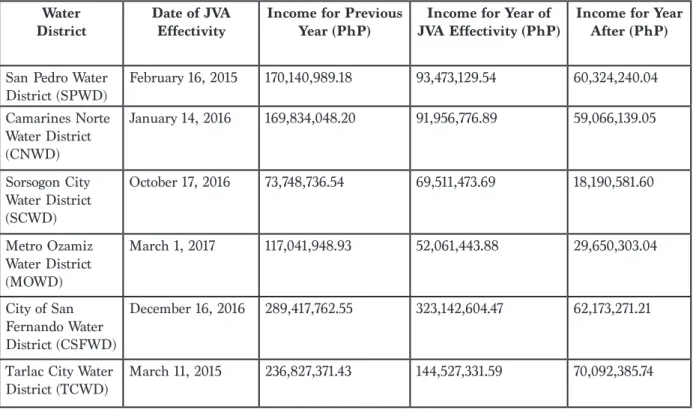
Barrameda
Using in-depth interviews, document review and focus group discussions, this article examines the organizing experiences of 15 organizations led and dominated by women and lesbian, gay, bisexual, transgender, queer, intersex, asexual + (LGBTQIA+) individuals to determine how they provide conditions for the growth and empowerment of women members and other marginalized groups, especially LGBTQIA+ members. At the same time, it provides an analysis of their organizing processes and practices that could be the basis for theorizing in feminist organizing. It highlights the following findings: 1) these organizations can be placed on a continuum: from bureaucratic to democratic structures; from an accommodating political orientation to transforming the existing social structures, and; from service-oriented, alternative to progressive entities;.
In addition, their organizing processes and practices reflect, in some ways, feminist organizing principles such as how organizing women and LGBTQIA+ individuals leads to actions that advance women's and LGBTQIA+ rights or address gender issues; empower women and LGBTQIA+ individuals to make informed choices; promote an awareness of the need to change the existing patriarchal culture and practices in organizations and communities; promote non-sexist values; and most importantly, contribute to an egalitarian vision of development and society. Finally, the following points are presented: 1) the organizing processes and practices of these organizations reflect certain similarities with feminist principles;.
Mapping the Terrain of Feminist OrganizingMapping the Terrain of Feminist Organizing
The analytical framework of the study is adopted from the organizational dimensions that Hooyman and Cunningham (1986) used in their exploratory study of the administrative style of women's organizations in terms of organizational structure, decision-making process and organizational values. Of the 15 respondent organizations1, six are from Visayas (five in Cebu and one in Iloilo) and nine are from Luzon (two from Isabela, one from Palawan, one from Batangas, one from Camarines Sur, one from Albay and three from Quezon City). Apart from the community-based savings group and the two service facilities for women, the rest of the organizations have several programs.
With the exception of the community savings group, the rest of the organizations have Vision, Mission, and Objectives (VMG) statements. The decision-making process of the organizations was measured by their conflict resolution strategies and by policy decisions. Similarly, the processes of the “alternative” organizations are participatory, especially when it comes to matters that would affect their members or beneficiaries.
The majority of organizations consider leadership and member development to be the core component in sustaining their organizations. On the other hand, the educational program of the cooperatives and the regional network of cooperatives focus on value creation, cooperativeism, solidarity economy and social protection. With the exception of the service facilities and the community-based savings group, the rest of the organizations place importance on mobilization as a form of power.
Organizing promotes awareness of the need to change the existing patriarchal culture and processes in organizations and communities. On the other hand, their organizational processes and practices in some way reflect feminist organizational principles, such as feminist values of respect for diversity; de/reconstructed notion of power; connection of personal and social issues, sisterhood, reciprocity, consensus and consensual and democratic organizational processes.
NOTES ON CONTRIBUTORS
